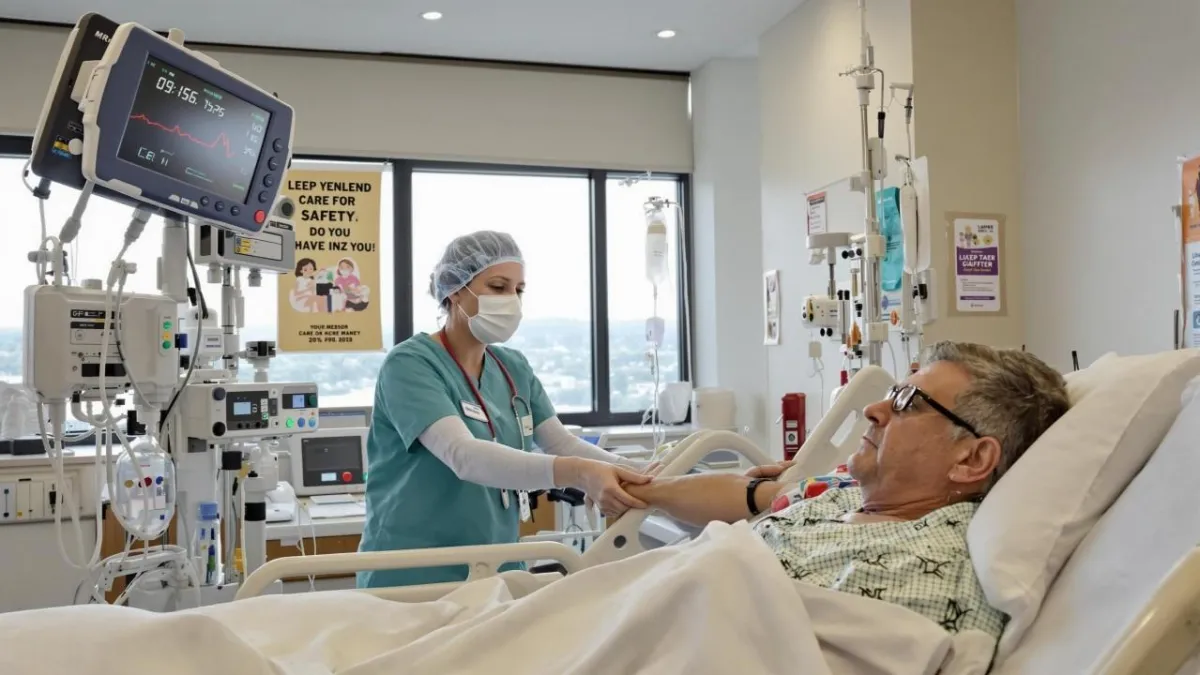Mandated Reporting in Nursing
Date published: May 8, 2025

Mandated reporting is at the heart of nursing practice, shaping every decision from patient assessment to intervention. In today’s complex healthcare environment, the ability of nurses to recognize subtle signs of abuse and neglect and to act decisively through mandated reporting can mean the difference between safety and ongoing harm. One of the most critical consequences of lapses in mandated reporting is the failure to protect vulnerable patients, which can result in continued abuse, trauma, or even death. This issue underscores the urgent need for nurses and healthcare organizations to prioritize the development and support of mandated reporting skills and systems.
This article explores the challenges of recognizing abuse and neglect, the mandated reporting process, legal and ethical considerations, and actionable strategies to support patients and families through these difficult situations.
The Scope and Impact of Mandated Reporting in Nursing
Errors or delays in mandated reporting are preventable events that may lead to missed or delayed protection for at-risk individuals. In nursing, these errors can result from uncertainty about the signs of abuse, lack of knowledge about reporting procedures, or fear of legal repercussions. The consequences are profound, affecting patient safety, family trust, and the reputation of healthcare organizations.
Key Statistics:
Recent studies in the Journal of Interpersonal Violence report that underreporting of abuse remains a significant issue in healthcare, with many cases going unrecognized or unreported. The American Nurses Association (ANA) emphasizes that timely and accurate reporting is essential to safeguarding vulnerable populations and is a core component of nursing ethics. The U.S. Department of Health & Human Services highlights that mandated reporting by healthcare professionals is a primary means of identifying and intervening in cases of child and elder abuse.
These findings highlight the urgent need for systemic changes to support mandated reporting, especially in high-risk settings.
Recognizing Signs of Abuse and Neglect
Understanding the root causes of missed reporting begins with recognizing the signs of abuse and neglect. Some of the most common indicators include unexplained injuries, frequent hospital visits, poor hygiene, malnutrition, fearful behavior, or inconsistent stories from patients or caregivers. Nurses must rely on clinical reasoning, experience, and a nonjudgmental approach to identify these signs, even when they are subtle or concealed. Ongoing education and training in recognizing abuse are essential for developing effective prevention and intervention strategies.
The Reporting Process
Preventing harm through mandated reporting requires a clear, standardized process. Nurses should be familiar with institutional protocols and state-specific laws regarding who to contact and what information to provide. The process typically involves documenting observations objectively, notifying the appropriate authorities (such as child or adult protective services), and following up as required. Timely reporting ensures that investigations can begin quickly, protecting the patient and potentially preventing further harm. Importantly, mandated reporters are protected by law when reports are made in good faith.
Legal and Ethical Considerations
Mandated reporting is governed by both legal statutes and ethical principles. Failure to report suspected abuse or neglect can result in legal consequences for nurses, including fines, loss of licensure, or criminal charges. Ethically, nurses are guided by the principles of beneficence, nonmaleficence, and respect for human dignity. Balancing patient confidentiality with the duty to report can be challenging, but the safety and well-being of the patient must always take precedence. Nurses must remain informed about their state’s reporting laws and institutional policies, and seek guidance from supervisors or legal counsel when in doubt. Upholding these responsibilities not only protects patients but also reinforces public trust in the nursing profession.
Supporting Patients and Families
The process of mandated reporting can be distressing for patients and their families. Nurses play a vital role in providing emotional support, clear communication, and advocacy throughout the process. This includes explaining the reasons for reporting, addressing fears or concerns, and connecting patients with appropriate resources such as counseling, social services, or legal assistance. Compassionate care and cultural sensitivity are essential, as patients may feel vulnerable, ashamed, or fearful of repercussions. By fostering a supportive environment, nurses help empower patients and families to navigate the aftermath of abuse or neglect and begin the journey toward recovery and safety.
Conclusion
Mandated reporting is a preventable safeguard against patient harm that demands immediate attention from nurses, healthcare leaders, and policymakers. By strengthening skills in recognizing abuse and neglect, standardizing the reporting process, and fostering a culture of safety and support, we can empower nurses to act swiftly and effectively, protecting lives and improving patient outcomes.
As nurses, we have a shared responsibility to ensure that every patient receives vigilant, informed, and compassionate care. By working together, we can reduce the incidence of unreported abuse and build a safer, more responsive healthcare system.
Visit our website https://drjuliesiemers.com/lifebeat-solutions/ and book a consultation with us. For inquiries, you can also reach out via email at [email protected].
#MandatedReporting #PatientSafety #NurseLife #HealthcareQuality #SafeCare #PatientCare
Mandated Reporting in Nursing
Date published: May 8, 2025

Mandated reporting is at the heart of nursing practice, shaping every decision from patient assessment to intervention. In today’s complex healthcare environment, the ability of nurses to recognize subtle signs of abuse and neglect and to act decisively through mandated reporting can mean the difference between safety and ongoing harm. One of the most critical consequences of lapses in mandated reporting is the failure to protect vulnerable patients, which can result in continued abuse, trauma, or even death. This issue underscores the urgent need for nurses and healthcare organizations to prioritize the development and support of mandated reporting skills and systems.
This article explores the challenges of recognizing abuse and neglect, the mandated reporting process, legal and ethical considerations, and actionable strategies to support patients and families through these difficult situations.
The Scope and Impact of Mandated Reporting in Nursing
Errors or delays in mandated reporting are preventable events that may lead to missed or delayed protection for at-risk individuals. In nursing, these errors can result from uncertainty about the signs of abuse, lack of knowledge about reporting procedures, or fear of legal repercussions. The consequences are profound, affecting patient safety, family trust, and the reputation of healthcare organizations.
Key Statistics:
Recent studies in the Journal of Interpersonal Violence report that underreporting of abuse remains a significant issue in healthcare, with many cases going unrecognized or unreported. The American Nurses Association (ANA) emphasizes that timely and accurate reporting is essential to safeguarding vulnerable populations and is a core component of nursing ethics. The U.S. Department of Health & Human Services highlights that mandated reporting by healthcare professionals is a primary means of identifying and intervening in cases of child and elder abuse.
These findings highlight the urgent need for systemic changes to support mandated reporting, especially in high-risk settings.
Recognizing Signs of Abuse and Neglect
Understanding the root causes of missed reporting begins with recognizing the signs of abuse and neglect. Some of the most common indicators include unexplained injuries, frequent hospital visits, poor hygiene, malnutrition, fearful behavior, or inconsistent stories from patients or caregivers. Nurses must rely on clinical reasoning, experience, and a nonjudgmental approach to identify these signs, even when they are subtle or concealed. Ongoing education and training in recognizing abuse are essential for developing effective prevention and intervention strategies.
Monitoring and Reporting
Collecting and analyzing data on safety incidents to identify trends and areas for improvement.
Establishing Standards
Developing and enforcing safety protocols to ensure consistency and quality across healthcare organizations.
Promoting Education
Providing training and resources to healthcare professionals to enhance their knowledge and skills in patient safety.
Encouraging Transparency
Creating a culture where healthcare workers feel empowered to report errors and near-misses without fear of retribution.

Driving Innovation
Leveraging technology and research to implement cutting-edge solutions for patient safety challenges.

The Reporting Process
Preventing harm through mandated reporting requires a clear, standardized process. Nurses should be familiar with institutional protocols and state-specific laws regarding who to contact and what information to provide. The process typically involves documenting observations objectively, notifying the appropriate authorities (such as child or adult protective services), and following up as required. Timely reporting ensures that investigations can begin quickly, protecting the patient and potentially preventing further harm. Importantly, mandated reporters are protected by law when reports are made in good faith.
Legal and Ethical Considerations
Mandated reporting is governed by both legal statutes and ethical principles. Failure to report suspected abuse or neglect can result in legal consequences for nurses, including fines, loss of licensure, or criminal charges. Ethically, nurses are guided by the principles of beneficence, nonmaleficence, and respect for human dignity. Balancing patient confidentiality with the duty to report can be challenging, but the safety and well-being of the patient must always take precedence. Nurses must remain informed about their state’s reporting laws and institutional policies, and seek guidance from supervisors or legal counsel when in doubt. Upholding these responsibilities not only protects patients but also reinforces public trust in the nursing profession.
Supporting Patients and Families
The process of mandated reporting can be distressing for patients and their families. Nurses play a vital role in providing emotional support, clear communication, and advocacy throughout the process. This includes explaining the reasons for reporting, addressing fears or concerns, and connecting patients with appropriate resources such as counseling, social services, or legal assistance. Compassionate care and cultural sensitivity are essential, as patients may feel vulnerable, ashamed, or fearful of repercussions. By fostering a supportive environment, nurses help empower patients and families to navigate the aftermath of abuse or neglect and begin the journey toward recovery and safety.
Conclusion
Mandated reporting is a preventable safeguard against patient harm that demands immediate attention from nurses, healthcare leaders, and policymakers. By strengthening skills in recognizing abuse and neglect, standardizing the reporting process, and fostering a culture of safety and support, we can empower nurses to act swiftly and effectively, protecting lives and improving patient outcomes.
As nurses, we have a shared responsibility to ensure that every patient receives vigilant, informed, and compassionate care. By working together, we can reduce the incidence of unreported abuse and build a safer, more responsive healthcare system.
Visit our website https://drjuliesiemers.com/lifebeat-solutions/ and book a consultation with us. For inquiries, you can also reach out via email at [email protected].
#MandatedReporting #PatientSafety #NurseLife #HealthcareQuality #SafeCare #PatientCare
